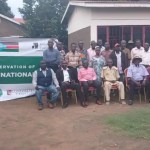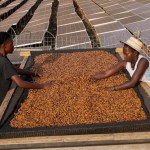(TAMBURA) – Seventeen people have died and thousands have been displaced after clashes between government forces and an armed group in Tambura County, Western Equatoria State, over the weekend. The violence marks a renewed escalation in a region where ethnic tensions and insecurity continue to threaten civilian lives and disrupt livelihoods.
Tambura County Commissioner Mathew Mabenge confirmed the deaths on Wednesday. According to Mabenge, the fighting took place in Tambura town and the nearby areas of Zangia and Sinakpuro. Among the dead were three civilians, two soldiers from the South Sudan People’s Defence Forces (SSPDF), and 12 members of an armed group. Four suspects were arrested during the operation.
He added that government forces recovered several weapons, including 12 AKM rifles, a rocket propelled grenade, and a box of PKM ammunition. Reinforcements were deployed from the SSPDF’s 6th Division in Maridi to restore order.
The clashes have triggered a deepening humanitarian crisis. Thousands of residents have been forced to flee their homes, abandoning farms and livestock due to insecurity and fear of further attacks.
Lucy Edward, acting county coordinator for the Relief and Rehabilitation Commission (RRC), described the situation as urgent. “Hunger is the most immediate concern. People cannot access their farms or food. Many lives have already been lost,” she said.
Edward reported that 11 displacement sites have been established. Of these, ten are currently housing 249 households. In Mopoi Payam, more than 2,000 displaced families are sheltering in temporary conditions. Another 108 households are living at the Source Yubu camp.
| Displacement Camp | Number of Households |
|---|---|
| Mopoi Payam | Over 2,000 families |
| Source Yubu | At least 108 |
| 10 other camps | 249 households |
Edward said a formal report had been submitted to humanitarian partners but warned that urgent assistance was needed. “If nothing is done, those responsible for this violence must be held accountable,” she said.
Tensions in the region are being fuelled by growing accusations of ethnic targeting. In a letter dated 23 July, the Balanda Council of Youth accused authorities of failing to prevent attacks against the Balanda community. The letter cited a series of incidents, including a 15 July attack in Sanakpuro that left three people injured, and a 16 July assault in Zangia that killed two and wounded four others.
The youth council questioned why the attackers had not been arrested. “Why have these criminals not been pursued or brought to justice? Is this inaction because of their tribal affiliation?” the letter stated.
The group also called for the withdrawal of SSPDF Commander James Nando, alleging his forces were being used to target the Balanda.
“This is not a government versus opposition conflict,” the letter added. “The Balanda have no political alignment. We are simply defending ourselves.”
The letter concluded with a warning: “We want peace, but if the killings continue, we will defend ourselves.”
Edmund Yakani, executive director of the Community Empowerment for Progress Organization (CEPO), condemned the violence, which he described as both ethnically and politically driven.
“Civilians in Sanakpuro, Bangaru, Zangia, and Nabaria are fleeing into forests without food, shelter, or medical assistance,” he said.
Yakani accused political and military leaders of using hunger as a weapon and manipulating ethnic divisions to serve their own interests. “This violence is being orchestrated by individuals in power for personal gain,” he said, calling on President Salva Kiir to intervene.
The national military spokesperson, Major General Lul Ruai Koang, said he had not yet received an official report on the incident.
Meanwhile, the humanitarian outlook remains bleak. The displacement has disrupted agricultural activity at the peak of the farming season, and aid agencies are struggling to reach affected populations. Relief workers say immediate food, shelter, and medical assistance are urgently required.
The conflict in Tambura is the latest in a series of violent episodes that have plagued parts of Western Equatoria. With many citizens already suffering from food insecurity and limited access to services, there are fears that continued unrest could spill into neighbouring counties if not addressed swiftly.


















































